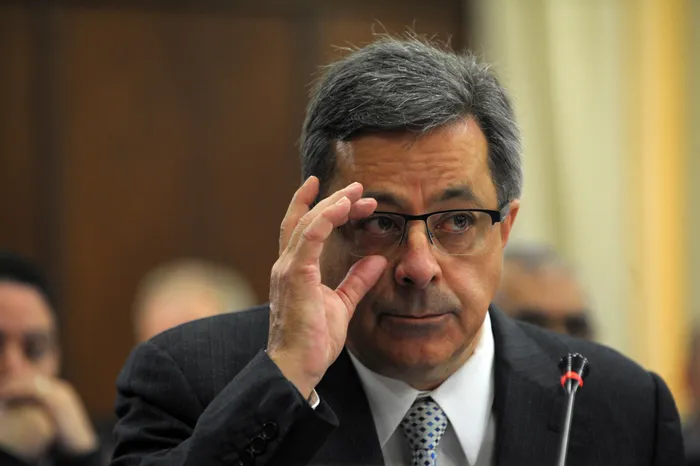
Former Steinhoff CEO Markus Jooste.
Image: Armand Hough/Independent Newspapers
It has been more than a year since the mysterious death of former Steinhoff CEO Markus Jooste, and questions about how he died still remain.
This ongoing uncertainty has led to growing concerns about the lack of transparency from the authorities.
Police has maintained silence on the investigation, offering no updates or explanations about the case.
Officially, Jooste was said to have died by suicide last year, but details remain scarce.
Reports indicate that Jooste succumbed to a gunshot wound at his Cape Town residence in Hermanus, but crucial questions linger: Were witnesses present? Was a proper investigation conducted? And what do the post-mortem reports reveal?
A day before his death, Jooste was under intense scrutiny from the Financial Sector Conduct Authority (FSCA), which had imposed a R475 million administrative fine on him for accounting irregularities linked to his former company, Steinhoff.
The fallout from the scandal had already shaken South Africa’s financial sector, with allegations that Jooste’s actions had jeopardised billions of rand in public funds.
The Progressive Civics Congress (PCC), a social justice organisation, has expressed frustration over the lack of progress.
Deputy Secretary Sipho Shange expressed concern over “the unresolved questions surrounding Jooste’s death” and the broader implications for public accountability.
“Jooste was involved in compromising the Public Investment Corporation (PIC) funds, amounting to R200 billion belonging to the Government Employees Pension Fund (GEPF),” Shange said.
“The Steinhoff scandal was a national issue, yet we have no answers about what happened to those pension funds.
“The public deserves transparency and accountability—and the silence from authorities raises suspicion.”
Shange further criticized the silence of labor unions, which traditionally advocate for workers’ rights and oversight in such matters.
He argued that their inaction may have contributed to the ongoing economic crisis, asserting that the loss of investment confidence and subsequent budget deficits have directly impacted ordinary citizens.
Adding to the concerns, Mary de Haas, a renowned crime expert and violence monitor, pointed out the broader issues of accountability and the integrity of investigations.
She said provincial police commissioners have the authority to expedite inquiries but have seemingly done little to resolve the case or uncover the truth.
“Questions about whether Jooste truly died by suicide or was murdered remain unanswered,” de Haas said.
“The only way to find out is through the post-mortem report, but access to such crucial documents is often denied or delayed. Without it, we are left to speculate.”
De Haas also highlighted the broader pattern of disappearances and unexplained deaths linked to political and financial scandals in South Africa, raising fears that some cases might be deliberately obscured to protect powerful interests.
National police spokesperson Athlenda Mathe and the Western Cape police spokesperson Novelwa Potane did not respond to questions.
Cape Argus
Related Topics:
